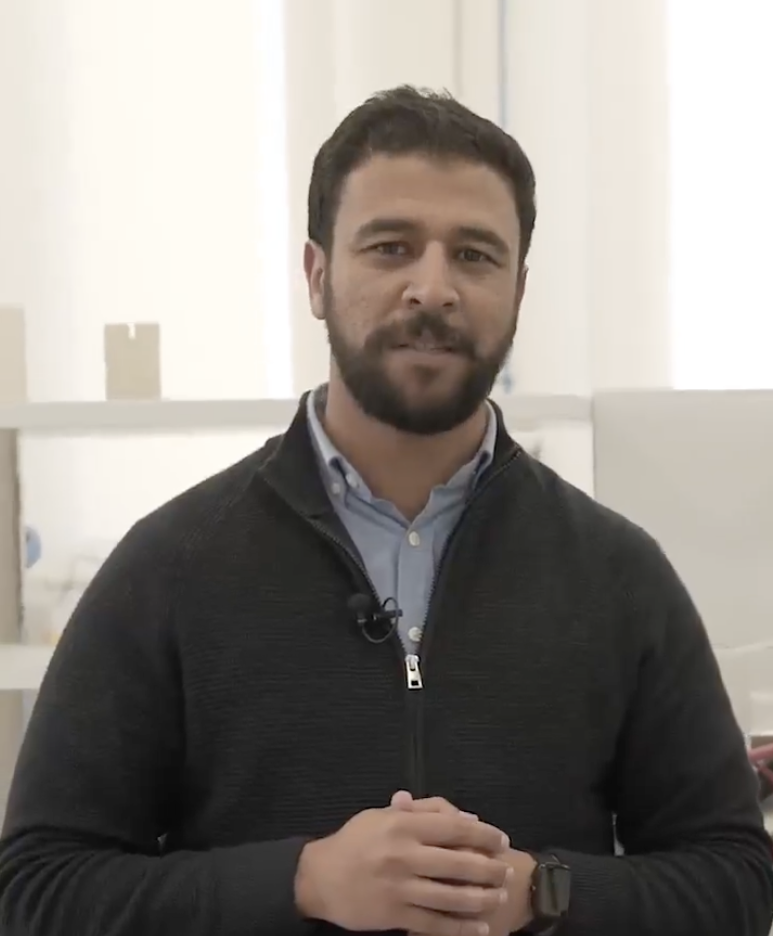1
How does mechanical pearling affect quinoa nutrients and saponin contents?
2
Introduction of alternative crops as a solution to groundwater and soil salinization in the Laayoune area, South Morocco
3
Ultrasound-Assisted Extraction of Isoquercetin from Ephedra alata (Decne): Optimization Using Response Surface Methodology and In Vitro Bioactivities
4
Holistic investigation of macroalgal species richness along the Southern Atlantic Coast of Morocco
5
Comparing antioxidant and cytoprotective effects: Quercetin glycoside vs. aglycone from Ephedra alata
6
Ultrasound-Assisted Extraction of Isoquercetin from Ephedra alata (Decne): Optimization Using Response Surface Methodology and In Vitro Bioactivities
7
Holistic investigation of macroalgal species richness along the Southern Atlantic Coast of Morocco
8
Bjerkandera adusta TM11 for the bioremediation of fluoroquinolone antibiotics spiked in wastewater: A sustainable approach to pharmaceutical contaminant biotransformation
9
Potentialities of semi-continuous anaerobic digestion for mitigating antibiotics in sludge
10
Degradation of antibiotics by homogeneous and heterogeneous Fenton processes: A review
11
Plant growth promoting rhizobacteria mitigate drought and salinity stresses, and improve the physiological and agronomic performances in crops: A systematic review
12
Valorization of water hyacinth to biomethane and biofertilizer through anaerobic digestion technology
13
Assessment of the agronomic value of solar-dried sludge and heavy metals bioavailability based on the bioaccumulation factor and translocation index
14
Sequential removal of human antibiotics as a function of the dynamic of organic matter fractions and 3D fluorescence during sludge composting
15
Solar Drying as an Eco-Friendly Technology for Sewage Sludge Stabilization: Assessment of Micropollutant Behavior, Pathogen Removal, and Agronomic Value
16
Eichhornia crassipes (Mart.) Solms: A Comprehensive Review of Its Chemical Composition, Traditional Use, and Value-Added Products
17
Combining sequential extraction and 3D fluorescence to investigate the behavior of antibiotic and polycyclic aromatic hydrocarbons during solar drying of sewage sludge
18
A Comprehensive Evaluation of the Existing Approaches for Controlling and Managing the Proliferation of Water Hyacinth (Eichhornia crassipes): Review
19
Identifying Advanced Biotechnologies to Generate Biofertilizers and Biofuels From the World’s Worst Aquatic Weed
20
How Does Mechanical Pearling Affect Quinoa Nutrients and Saponin Contents?
21
Heavy metal accumulation and genotoxic effect of long-term wastewater irrigated peri-urban agricultural soils in semiarid climate
22
Effectiveness of helminth egg reduction by solar drying and liming of sewage sludge
23
Effects of solar drying on heavy metals availability and phytotoxicity in municipal sewage sludge under semi-arid climate
24
Micronucleus assay based on Vicia faba roots as a tool to assess the performances of wastewater treatment systems
25
Physico-chemical and Spectroscopy Assessment of Sludge Biodegradation During Semi-industrial Composting Under Semi-arid Climate
26
Bioremediation of landfill leachate by Aspergillus flavus in submerged culture: Evaluation of the process efficiency by physicochemical methods and 3D fluorescence spectroscopy
27
Assessment of the genotoxicity of antibiotics and chromium in primary sludge and compost using Vicia faba micronucleus test
28
Helminth eggs inactivation efficiency by sludge co-composting under arid climates
29
Fate of antibiotics present in a primary sludge of WWTP during their co-composting with palm wastes
30
Human and veterinary antibiotics during composting of sludge or manure: Global perspectives on persistence, degradation, and resistance genes
31
OPTIMISATION DU CO-COMPOSTAGE DES BOUES RESIDUAIRES DE STATIONS D'EPURATION AVEC UN POLYMERE LIGNO-CELLULOSIQUE ISSU DE PALMIER DATTIER (PHOENIX) EN CONDITIONS CONTROLEES DANS UN BIOREACTEUR
32
A pressurized liquid extraction approach followed by standard addition method and UPLC-MS/MS for a fast multiclass determination of antibiotics in a complex matrix
33
Effect of dewatering and composting on helminth eggs removal from lagooning sludge under semi-arid climate
34
Evaluation of the antibiotics effects on the physical and chemical parameters during the co-composting of sewage sludge with palm wastes in a bioreactor


